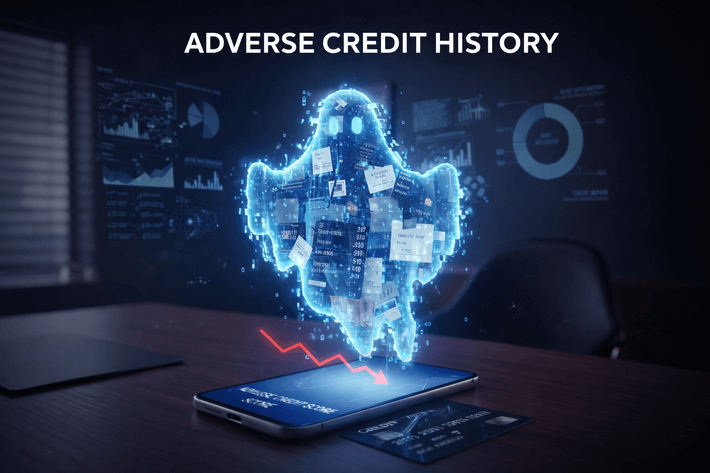Getting a Business Loan After Bankruptcy: Here Are Your Options
In 2024 alone, 486,613 bankruptcies were filed in the US, making them much more common than people think.
And while this is often seen as a last resort option in business operations, there are still some ways to get funding afterwards.
Alternative Funding After Filing For Bankruptcy
The fact that bankruptcy can stay on your credit report for up to ten years is its biggest downside.
Most traditional lenders will hesitate to issue you a business loan if your bankruptcy hasn't been erased.
However, you have some options to get funding despite this setback.
Find a Co-Signer
A co-signer can significantly up your chances of getting a small-business loan after bankruptcy.
Their purpose is to vouch for you and settle your debt in case you fail to make your payments. However, given that this carries no benefits for the co-signer, it can be challenging to find one.
Crowdfunding
If you cannot get an SBA loan after bankruptcy, you can turn to crowdfunding. Sourcing money this way includes donations, equity, debt, and rewards crowdfunding.
The best way to access this is by signing up on one of the prominent online crowdfunding platforms.
Donation crowdfunding refers to funding where individuals send free money to your business. Obviously, you won’t need to pay this back.
Equity crowdfunding involves finding an investor or several to whom you’ll sign over a small portion of your business. In turn, they provide financial support for your business.
Debt crowdfunding is similar to taking out a loan from a bank. You pay interest, but instead of receiving the money from a bank, you get it from interested people.
Lastly, rewards crowdfunding includes the company offering its products or services in exchange for monetary donations.
Angel Investors
Angel investors use their own money to fund promising small businesses. This works similarly to equity crowdfunding, although this option includes raising money privately.
These investors receive equity; that is, they get to own a percentage of your company.
A significant perk of collaborating with an angel investor is that they primarily target fledgling businesses and will usually mentor the entrepreneurs in their journey.
What You Can Do to Help Your Bankruptcy Case
Your best bet to improve your chances of getting a loan after filing for bankruptcy is to boost your credit score. Here are some steps you can take:
Meet Your Payment Obligations
This one is a no-brainer: To improve your credit score, you need to demonstrate to potential lenders that, despite your history of bankruptcy, you can handle payment obligations, including bills.
Write Down a Promising Business Plan
Lenders inspect a company’s business plan when considering their application for a business loan.
Therefore, putting extra effort into creating an enticing business plan can pay off, and help you get approved for a business loan even after bankruptcy.
Include the reasons you filed for bankruptcy. They should be reasonable, but truthful explanations that would make lenders understand why you had no other choice, and how you learned from it, to reassure them of your ability to make payments on time.
Boost Your Marketing Strategy
Marketing plays a crucial role in a company’s success, so your chances of getting a business loan while in Chapter 13 greatly depend on how you present yourself.
There are 2.71 billion smartphone users worldwide, and they spend 171 minutes a day on their devices.
Therefore, it would be wise to focus on mobile advertising for your business.
What’s more, optimizing your website for mobile use, and even creating a mobile app can be a part of this effort. You should also make company pages on popular social media platforms.
Sign Up for a Fresh Start Loan
A fresh start loan is a financial product specifically created for people with low credit scores: After bankruptcy, regular loans are tough to obtain.
It’s also referred to as a credit-builder or “starting over” loan. While you won’t have access to the money before paying off your debt in full, this is an excellent way to build your credit score and save money for the future.
Acquire a Secured Credit Card
A secured credit card is a type of card that primarily caters to individuals with a damaged credit score, or those that don’t have one.
The reason for this is the fact that the consumer is required to leave a deposit to be able to use the card.
This cash security deposit allows the issuer to recover losses if the customer fails to meet payment obligations. The size of the deposit usually reflects the credit limit amount.
Using a secured credit card responsibly and making timely payments demonstrates to lenders that you can fulfill your obligations, and can thus help you get a business loan after bankruptcy.
Become an Authorized Credit Card User
An alternative to getting a secured credit card is acquiring authorization to use a credit card issued in someone else’s name.
While the responsibility of making sure everything is paid on time falls on the primary user, your usage of this credit card is still visible on your credit report.
Using the card responsibly shows lenders that you’re capable of making payments on time, which will allow you to acquire a line of credit despite your bankruptcy.
For years, the clients I worked for were banks. That gave me an insider’s view of how banks and other institutions create financial products and services. Then I entered the world of journalism. Fortunly is the result of our fantastic team’s hard work. I use the knowledge I acquired as a bank copywriter to create valuable content that will help you make the best possible financial decisions.





